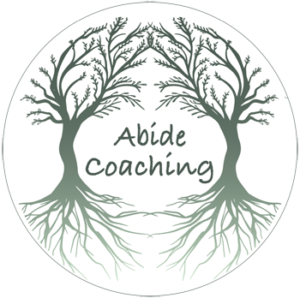Students have full lives just like adults but don’t always have the executive function (EF) skills to do what they are being asked to do. Whether the student is in middle school, high school or college, they can be overwhelmed with everything they feel like they need to do albeit to different extents.

Many will not ask for help for one reason or another. If you are a student, you should know if is fine to ask for help; we all need help sometimes. If you are a parent, don’t assume your child knows how to handle everything on their plate. Don’t plan for them but ask them what their plan is to finish their report, project, chores, etc. You should ask questions to make them think about how to spend their time.
- Lack of planning/prioritizing is an issue most of my clients share but many students truly don’t understand the skill itself. I know it is the 21st century and students are techier than most adults but the truth is mobile devices still aren’t allowed in most middle and high schools. Also, most people including students can’t remember everything they need to do. So use a planner to write down your homework, due dates, practice times for sports, music lesson, etc, clubs, to schedule when you will do your homework and chores. I prefer a grid-style calendar like the one I show on my blog Back to School Must Haves. It shows the passage of time allowing most people’s brains understand it better. I encourage my clients to plan out their weeks on Sundays. They have a general idea of how they want their week to go. It’s not set in stone but it is a guide. It is a great life long habit to form. Many of my clients who are in college, have ADHD or are kinetic learners tend to stick with the paper planners in later in life too.
- Procrastination is a serious issue for students. Usually, because the task they aren’t doing is overwhelming. It is so big they don’t know where to start. Breaking it down into step will help but only if you know how to do that. If you have trouble doing this, ask someone to help you. Once broken down, those step should be added to your planner. (Side note: For large projects or reports, the due date should really be the finish date. My general rule of thumb to pad two days for every week until the due date. So if you are given a project that is due in three weeks (21 days), you should plan on finishing it in 15 days. This padding allows for sick days, tech problems, issues if working with a partner or other tasks that may come up.)
- Distractions are everywhere today. Everyone’s biggest distraction these days is our smartphones. I would suggest not studying in the room where your phone is located, turning off all your notifications or setting the do not disturb setting while doing homework. If you have a younger student, setting up controls on their phone or your Wifi router. Using a timer is a great way to not get distracted. I like Time Timers. Most students from 15-30 minutes. If you can focus longer, great you should do that. Don’t worry about how long but the quality of work getting done in that time. You can alway increase the time as sustained attention improves. My daughter, who is in college, has a hard time focusing. Her system is to study for 30-minutes, break for 5 minutes, repeated for 2-3 hours at a time. She gets more done than trying to for two hours straight because knowing that there is a break coming helps her stay motivated.
- Sleep and exercise – Student who don’t get enough sleep, especially college students who pull all-nighters have lower GPAs than those you get plenty of sleep so schedule sleep. Exercise has been proven over and over again to help concentration and improve health at every age.
- Your own rhythm -We all have times of day when we are either mentally better or physically better. Figure out what yours are. A jog in the morning is torture for me but in the early evening is great. Writing a blog is the morning is great but in the later afternoon would be hard. You may be the same of the opposite.
- Read your notes daily – The AVID program (Advancement Via Individual Determination) has is right. Reading over your notes daily for classes will make studying for tests a breeze. The more often you interact with now information the better you learn it. I would also suggest Cornell notes.
The benefits are amazing for those who develop habits and are organized. It is easier to staying focused on goals, have increased productivity, use time better, are less stressed, lead a more balanced life, actually gain flexibility in your routine, have a more positive attitude, and be more creative. Making too many changes at once isn’t good neither. It is too much for most of us to handle. Pick one that would benefit you the most work on it for 4-6 months until it is truly a habit and feels natural to you. Once it is working pick something else and work on that for 4-6 month, repeat.
